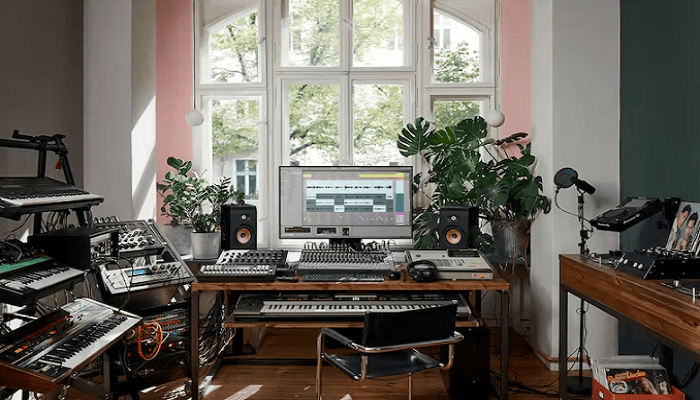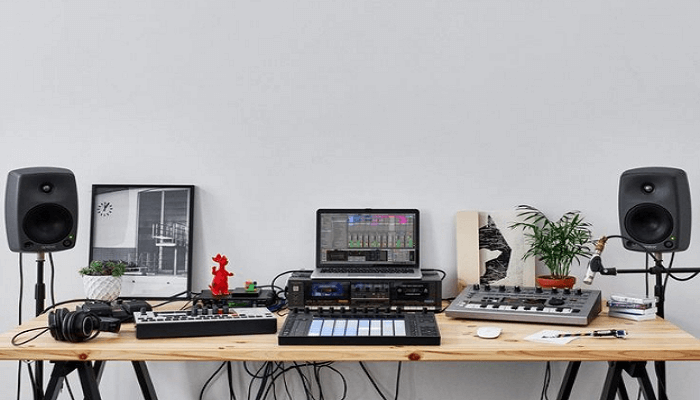Why Is Ableton So Expensive – Ableton Live is a popular digital audio workstation (DAW) used by music producers and artists around the world. While it is praised for its intuitive interface and powerful tools for music production, one common question that arises is why is Ableton so expensive.
The cost of Ableton Live can be a barrier to entry for some aspiring music producers, especially when compared to other DAWs on the market.
Reasons Why is Ableton So Expensive

We will explore the reasons behind the high cost of Ableton Live and discuss whether it is worth the investment for musicians looking to take their craft to the next level.
- Session View and Arrangement View – Ableton offers two different ways to work with your music: the Session View and the Arrangement View. The Session View is a unique feature that allows you to experiment with different clips and loops, while the Arrangement View is a more traditional timeline-based interface.
- Instruments and Effects – Ableton comes with a vast library of instruments and effects that you can use to create your music. From synthesizers to samplers to drum machines, there’s something for everyone in Ableton’s library.
- Max for Live – Max for Live is a programming environment that allows you to create your own custom instruments and effects. This powerful feature is only available in Ableton, making it a popular choice for producers who want to customize their sound.
- Live Performance – Ableton is known for its ability to be used in live performance settings. With features like clip launching, MIDI mapping, and automation, Ableton is a popular choice for DJs and electronic musicians who want to perform live.
- Standard vs. Suite – Ableton offers two different versions of its software: Standard and Suite. The Standard version is priced at $449, while the Suite version is priced at $749. The main difference between the two versions is the number of instruments and effects included.
- Upgrades – Ableton also offers upgrade pricing for users who already own a previous version of the software. Upgrades from Standard to Suite cost $399, while upgrades from Live Lite to Standard cost $350.
- Subscription – In addition to the upfront cost of Ableton, the company also offers a subscription service called Ableton Live 11 Suite+. This subscription service costs $79 per month or $749 per year and includes all the features of the Suite version of the software, as well as access to additional content and updates.
- Education Pricing – Ableton offers education pricing for students and teachers. The Standard version is priced at $269 for students and $319 for teachers, while the Suite version is priced at $449 for students and $539 for teachers.
- Demos and Trials – Ableton also offer a free 90-day trial of the software for users who want to try it out before purchasing. Additionally, the company offers a demo version of the software that can be used for an unlimited amount of time, but with certain limitations.
- Research and Development – Ableton invests a significant amount of money into research and development. The company is constantly improving its software and adding new features, which requires a lot of resources.
- Quality Control – Ableton has a reputation for producing high-quality software. The company takes great care to ensure
Which is Better Ableton or FL Studio?
Both Ableton Live and FL Studio are popular digital audio workstations (DAWs) used by music producers and artists. However, which one is better depends on individual preferences, needs, and workflows.
Ableton Live is often favored by electronic music producers and live performers due to its intuitive session view and powerful looping and sequencing capabilities. It also has a unique feature called “Warping” which allows users to time-stretch audio in real time.
On the other hand, FL Studio is popular for its straightforward interface and ease of use, making it a great choice for beginners. It also has a wide range of plugins and sample libraries that come bundled with the software, making it an all-in-one solution for music production.
The choice between Ableton Live and FL Studio ultimately depends on the individual user’s needs, workflow, and personal preference. Both DAWs have their strengths and weaknesses, so it’s important to try out both and see which one works best for you.
Do Producers Use Ableton?
Yes, many producers use Ableton Live as their primary digital audio workstation (DAW). Ableton Live is particularly popular among electronic music producers, as its unique session view and advanced looping and sequencing capabilities make it ideal for creating and performing live electronic music.
In addition to electronic music, Ableton Live is also used in a variety of other genres, including hip-hop, pop, and rock. Many producers appreciate the software’s intuitive interface and the ability to quickly sketch out ideas in a session view.
Some notable music producers who use Ableton Live include Deadmau5, Skrillex, Diplo, and Flume. However, it’s important to note that while Ableton Live is a popular choice among producers, there are many other DAWs available and the choice ultimately depends on personal preference and workflow.
Is Ableton or FL Studio Better for Beginners?

Both Ableton Live and FL Studio are great choices for beginners, but which one is better depends on personal preference and the specific needs of the user.
FL Studio is often praised for its ease of use and straightforward interface, making it a great choice for beginners who are just starting out with music production. It also includes many built-in instruments and effects, which can help users get started with making music right away.
Ableton Live, on the other hand, has a slightly steeper learning curve but is still accessible for beginners. It offers a unique session view that allows users to quickly sketch out musical ideas and loop them in real time.
Additionally, it has a powerful set of tools for electronic music production, such as its “Warping” feature that allows users to manipulate audio in real time.
The choice between Ableton Live and FL Studio comes down to personal preference and the needs of the user. Both DAWs offer a wide range of features and tools that can be helpful for beginners, so it’s recommended to try out both and see which one works best for you.
Do Professionals Use Ableton?
Yes, many professional music producers, composers, and performers use Ableton Live as their primary digital audio workstation (DAW). Ableton Live is particularly popular among electronic music producers, but it is also used in other genres such as hip-hop, pop, and rock.
Ableton Live offers a unique set of features that make it a popular choice among professionals. For example, its session view and advanced looping and sequencing capabilities are ideal for creating and performing live electronic music.
It also has a powerful set of tools for music production, such as its “Warping” feature that allows users to manipulate audio in real time.
Notable professional musicians who use Ableton Live include Deadmau5, Skrillex, Diplo, and Flume. Additionally, many film and TV composers also use Ableton Live to create music for movies, TV shows, and commercials.
Ableton Live is a widely used DAW in the professional music industry and is favored for its unique features and powerful tools.
Conclusion
In conclusion, the high cost of Ableton Live can be attributed to the software’s unique features, advanced tools, and innovative design.
While the price tag may seem steep, it is important to consider the value that Ableton Live provides to musicians and producers.
Its intuitive interface, powerful sequencing and looping capabilities, and comprehensive set of effects and instruments make it a favorite among many professionals in the music industry.
Additionally, Ableton offers regular updates and improvements, as well as a robust community of users who provide support and resources.
Ultimately, the decision to invest in Ableton Live comes down to personal preference and the specific needs of the user, but for many musicians, the cost is worth the investment for the unparalleled creativity and efficiency it provides.
Related:
- Why Are Beats So Expensive
- Why is Cox So Expensive
- Why is Premiere Pro So Expensive
- Why Are Motherboards So Expensive
- Why Are Hard Drives So Expensive
- Why Are Mechanical Keyboards So Expensive
- Why is Audible So Expensive
- Why Are PC Parts So Expensive
- Why is Ram So Expensive
- Why is Windows So Expensive
- Why Are Graphics Card So Expensive
- Why is CASETiFY So Expensive